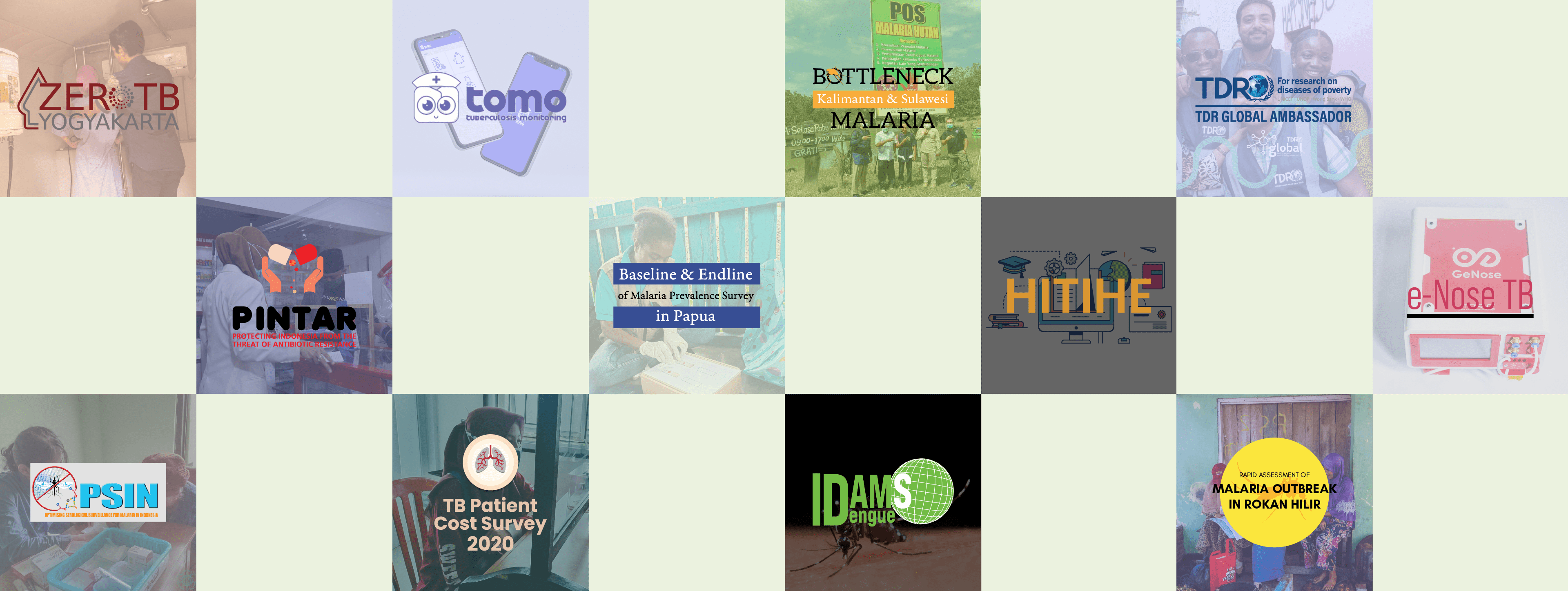Project Description
Study Menjaga: A Cluster Randomised Control Trial of Continuous Quality Improvement to Improve Antenatal HIV, Syphilis and Hepatitis B Detection and Treatment in Indonesia
Safeguarding expectant mothers and children from HIV, syphilis, and hepatitis Envision a scenario in Indonesia where every pregnant woman and child has unfettered access to essential health-care services for their well-being. Picture a setting where three prevalent infections—HIV, syphilis, and hepatitis B—no longer jeopardize the lives of newborns. In 2019, a collaborative group of researchers from Gadjah Mada University’s Center for Tropical Medicine (PKT UGM), Sebelas Maret University (UNS), the London School of Hygiene and Tropical Medicine (LSHTM), and The Kirby Institute launched the MENJAGA study to delve deeper into the integration of triple infection rapid testing for HIV, syphilis, and hepatitis B into antenatal care (ANC) programs across Indonesia.
Collaborators

Donor
Medical Research Council
Duration
2019-2024
Principal Investigator
Ari Natalia Probandari
Access for pregnant women and children to healthcare is hindered by four main barriers: accessibility, logistics, demand, and recording/reporting. A study in 2022 across West Java Province and South Kalimantan revealed specific challenges in different regions. In Bogor Regency, mountainous terrain and remote health centers complicate access. In Kalimantan, health centers located along riverbanks are often inaccessible during floods, and transportation costs are high. These access issues reduce the demand for prenatal check-ups and rapid tests for HIV, syphilis, and hepatitis B. Additionally, a lack of integrated systems for recording and reporting hinders efficient management and procurement of testing tools, causing frequent shortages. To address these issues, the MENJAGA Study proposes a continuous quality improvement (CQI) approach, involving multiple stakeholders and CQI training for local health departments. This sustainable intervention aims to overcome challenges and improve testing coverage. The study plans further training and interventions in 2023, with the goal of providing recommendations to government stakeholders to enhance the success of triple infection rapid tests and move towards eradicating these infections in Indonesia.
The Project Team



Other researcher:
- dr. Vitri Widyaningsih, M.S., Ph.D.
- dr. Yusuf Ari Mashuri, M.Sc.
- Juniati Rahmadani, S.Si., MPH.
- Eka Putri Puspita

